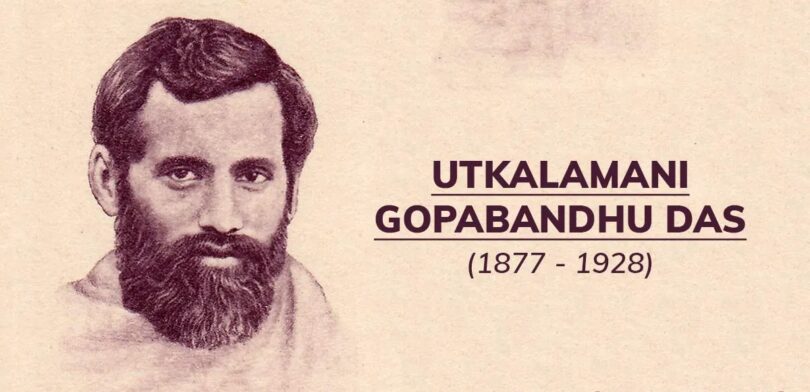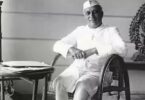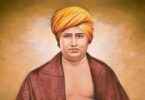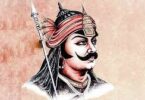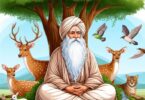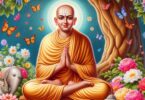It was a monsoon evening. The rainfall was incessant. Puri was then a tiny town having no street lights. Electricity was unknown. In a small house an ailing boy, the only son of his parents was lying motionless. The doctors have failed to cure him. Anything might happen at any moment. The house was faintly lighted by two hurrican lanterns. Near the boy were his parents and a few friends and relatives observing his condition with deep sorrow and apprehension.
Suddenly there was a knock at the entrance door. The father of the boy took a lantern and opened it. In came two persons from a village of Puri District with the horrifying news that due to un-precedents flood in river Bhargavi several villages have been submerged and thousands of persons are in great peril. Without a moment’s delay the father of the boy said “Immediate help is essential. Wait a bit. I wi will accompany you to the spot”. This amazed all others present near the boy’s bed. The boy’s mother could not control her feelings and said “what a father you are? Your only son is in the grips of death, and you have a heart to go out for relief work?” The father politely replied “Worry not. I am no physician. Moreover, longevity is only under God’s control. I may lose one son, if fate so ordains, but I must try to rescue a thousand sons”. Soon after that he left his abode along with the two messengers to do the needful for the people affected by flood.
He returned after a few days and learnt that his only son has departed for ever. This incomparable and supreme sacrifice made him ever memorable to the Oriya nation and earned for him the title of “Utkalmani”. As Gopabandhu Das left his only son in his death bed for the service of his suffering countrymen, so, as a mark of respect and gratitude, till today, his annual Sradha ceremony, which is the son’s duty, is performed by the public of Orissa. Service and sacrifice were the motto of
Gopabandhu’s life.
Gopabandhu was born in a middle class Brahmin family of village Suando in Puri District in the year 1877. His father’s name was Daitary Das and he was pious person. Gopabandhu lost his mother while he was a child. He was a born poet, so he considered river Bhargavi that flowed by the side of Suando, as his mother, and composed several poems on that river. After matriculation, he joined the Ravenshaw Collage at Cuttack. While he was studying there, he occasionally used to visit a very wealthy and magnanimous person of that time named Ram Chandra Das. Ram babu took pleasure in talking to students and helping them. Once, when Gopabandhu and several other students were sitting near him, Ram babu asked one by one what he proposes to do after completion of study. Some said service, some said business, some wanted to be engineers, but Gopabandhu alone replied “I will serve my countrymen”. This highly impressed Ram Babu. He gave him all he needed unasked for. After graduation, with the patronage of Ram babu, Gopabandhu passed B.L. from Calcutta. While studying law at Calcutta he was shocked to see the miserable condition of the Oriya labourers there. So, while studying, he devised various means for betterment of their condition.
On return from Calcutta, he worked for a short time as a teacher at Nilagiri High School. Then he was appointed as the State lawyer of Mayurbhanj. But his aim was not earning money but serving his countrymen. So, in 1916 he got elected as a member of the then Bihar and Orissa Legislative Council. At that time, he also started an ideal educational institution at Satyabadi of Puri District. Here he followed the forgotten teaching system of our ancient sages which includes self-help, simple living, high thinking and social service besides prescribed curriculum. His Vana Vidyalaya of Satyabadi became so famous that Sir Edward Gait, the then Governor of Bihar and Orissa, came to see it for himself.
Gopabandhu joined Gandhiji’s non-co-operation movement and courted imprisonment several times. To express public grievances and to expose the misdeeds of the British Government, he started a weekly newspaper named “Samaj” in 1919, which today is the most popular and widely circulated daily of Orissa.
Whenever any news of flood or drought reached Gopabandhu, he personally rushed to the spot and personally arranged necessary relief. He wanted to keep nothing for himself, or for his relation So, prior to his death in June 1927, by a will he dona the Satyabadi Press and the Samaj to a social service body called Lok Sevak Mandal started by the famous patriot Lala Lajpat Rai. This proves how selfless and sympathetic Gopabandhu was
Gopabandhu is no more in his mortal form today. But his statues are erected all over Orissa. He has set an ideal which each honest and patriotic Oriya should follow.


